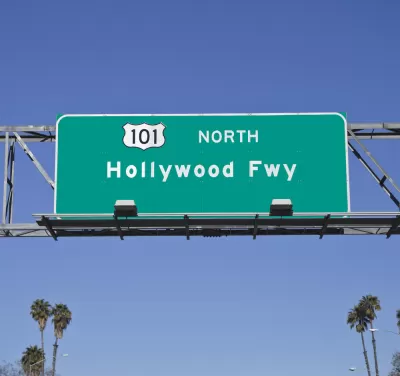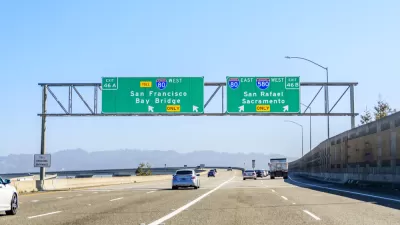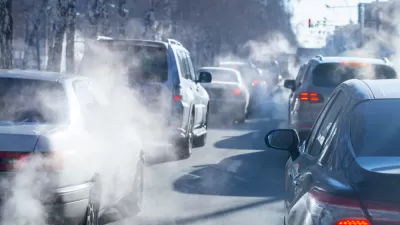After adopting the Clearview font in 2004, ending the Highway Gothic in use since the 1960s, the U.S. Federal Highway Administration reversed course in January and will again require the older font. This small change matter a great deal.

"In a notice posted in the Federal Register on Monday, the U.S. Federal Highway Administration announced a small change that has huge implications for the nation," according to an article by Kriston Capps.
The matter of national interest, in this case, is the question of the typeface used on highway signs. "By ending its 'Interim Approval for Use of Clearview Font for Positive Contrast Legends on Guide Signs,' the FHWA reversed its position on Clearview, a font developed to improve highway-sign legibility on the roads," explains Capps. Clearview was adopted in 2004, "based on studies that appeared to demonstrate its superiority, especially in nighttime driving tests."
In 2016, however, the FHWA has decided to return to Highway Gothic as the font required for U.S. highways.
Capps's coverage of the big change includes the unhappy response of Donald Meeker, one of the designers who created Clearview, as well as an explanation of the thinking behind the FHWA's decision to reverse course on the two fonts in question.
FULL STORY: America's Sudden U-Turn on Highway Fonts

Planetizen Federal Action Tracker
A weekly monitor of how Trump’s orders and actions are impacting planners and planning in America.

San Francisco's School District Spent $105M To Build Affordable Housing for Teachers — And That's Just the Beginning
SFUSD joins a growing list of school districts using their land holdings to address housing affordability challenges faced by their own employees.

The Tiny, Adorable $7,000 Car Turning Japan Onto EVs
The single seat Mibot charges from a regular plug as quickly as an iPad, and is about half the price of an average EV.

Seattle's Plan for Adopting Driverless Cars
Equity, safety, accessibility and affordability are front of mind as the city prepares for robotaxis and other autonomous vehicles.

As Trump Phases Out FEMA, Is It Time to Flee the Floodplains?
With less federal funding available for disaster relief efforts, the need to relocate at-risk communities is more urgent than ever.

With Protected Lanes, 460% More People Commute by Bike
For those needing more ammo, more data proving what we already knew is here.
Urban Design for Planners 1: Software Tools
This six-course series explores essential urban design concepts using open source software and equips planners with the tools they need to participate fully in the urban design process.
Planning for Universal Design
Learn the tools for implementing Universal Design in planning regulations.
Smith Gee Studio
City of Charlotte
City of Camden Redevelopment Agency
City of Astoria
Transportation Research & Education Center (TREC) at Portland State University
US High Speed Rail Association
City of Camden Redevelopment Agency
Municipality of Princeton (NJ)





























